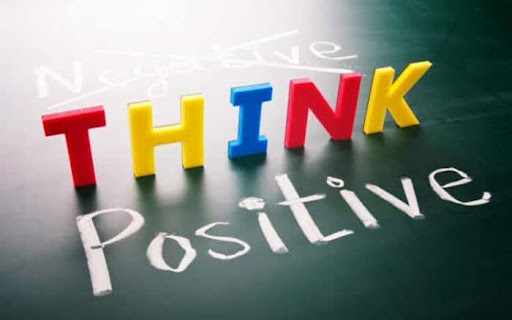Introduction
Self-awareness is a cornerstone of personal growth. It involves understanding your thoughts, emotions, values, and behaviors, and how they influence your interactions and decisions. Developing self-awareness can lead to profound personal and professional growth by fostering deeper insights into yourself and your relationships. Here’s a detailed look at how self-awareness plays a crucial role in personal growth and practical strategies to cultivate it

1. Understanding Self-Awareness
Self-awareness is the ability to introspect and understand your internal states and their impact on your behavior and interactions. It involves being aware of your strengths, weaknesses, values, and emotions, and recognizing how these factors shape your actions.
Benefits:
- Enhances clarity about your goals and motivations.
- Improves emotional intelligence and decision-making.
- Fosters more authentic and meaningful relationships.
Practical Tips:
- Regularly engage in self-reflection and mindfulness practices.
- Seek feedback from others to gain different perspectives.
- Journal your thoughts and experiences to identify patterns and insights.

2. Improving Decision-Making
Self-awareness enhances decision-making by providing a clearer understanding of your values, priorities, and goals. When you are aware of your motivations and biases, you can make more informed and deliberate choices.
Benefits:
- Leads to decisions that align with your true values and objectives.
- Reduces the influence of unconscious biases and emotions.
- Enhances the ability to weigh options and anticipate consequences.
Practical Tips:
- Reflect on past decisions to understand what influenced them.
- Consider how your values and goals align with your choices.
- Use decision-making frameworks to evaluate options objectively.
3.Enhancing Emotional Intelligence
Self-awareness is a key component of emotional intelligence, which involves understanding and managing your emotions as well as recognizing and influencing the emotions of others. Greater self-awareness allows you to handle your emotions more effectively and respond to others with empathy.
Benefits:
- Improves emotional regulation and resilience.
- Enhances empathy and interpersonal communication.
- Strengthens conflict resolution and collaboration skills.
Practical Tips:
- Practise mindfulness to become more aware of your emotional responses.
- Identify triggers and patterns in your emotional reactions.
- Engage in active listening to better understand others’ emotions.
4.Facilitating Personal Development
Self-awareness accelerates personal development by helping you identify areas for growth and set meaningful goals. It enables you to recognize your strengths and weaknesses and develop strategies to improve and achieve your aspirations.
Benefits:
- Provides insights into your personal strengths and areas for improvement.
- Helps you set realistic and achievable goals.
- Encourages continuous learning and self-improvement.
Practical Tips:
- Conduct regular self-assessments to evaluate your progress and goals.
- Seek out opportunities for feedback and learning from others.
- Develop an action plan based on your self-reflection and assessments.

5. Building Stronger Relationships
Understanding yourself better helps you build stronger relationships by fostering more authentic and empathetic interactions. Self-awareness enables you to communicate more effectively and respond to others in a more understanding and supportive manner.
Benefits:
- Enhances communication and reduces misunderstandings.
- Promotes deeper and more meaningful connections.
- Improves conflict resolution and relational dynamics.
Practical Tips:
- Reflect on how your behaviour and communication affect others.
- Practise expressing your needs and boundaries clearly and respectfully.
- Work on recognizing and addressing any patterns that may affect your relationships.
6. Boosting Confidence and Self-Esteem
Self-awareness helps build confidence and self-esteem by providing a realistic understanding of your abilities and accomplishments. Recognizing your achievements and areas of strength fosters a positive self-image and greater self-assurance.
Benefits:
- Reinforces a positive self-concept and self-worth.
- Encourages self-acceptance and resilience.
- Motivates you to pursue goals with greater confidence.
Practical Tips:
- Celebrate your successes and acknowledge your strengths.
- Reflect on positive feedback and accomplishments regularly.
- Challenge and reframe negative self-beliefs or perceptions.

7. Navigating Life Changes
Self-awareness aids in navigating life changes by helping you understand your reactions and adapt to new circumstances. It provides clarity on how changes align with your values and goals, making transitions smoother and more manageable.
Benefits:
- Enhances adaptability and resilience during change.
- Provides a clearer perspective on how changes impact your goals and values.
- Helps you develop effective strategies for managing transitions.
Practical Tips:
- Reflect on your values and goals in the context of upcoming changes.
- Identify how your strengths can help you navigate new situations.
- Seek support and resources that align with your self-awareness insights.
Conclusion
Self-awareness is fundamental to personal growth, influencing decision-making, emotional intelligence, personal development, and relationships. By developing a deeper understanding of yourself, you unlock the potential for more meaningful and fulfilling experiences. Embrace self-awareness as a continuous journey of introspection and learning, and apply its insights to drive positive change and growth in your life.

